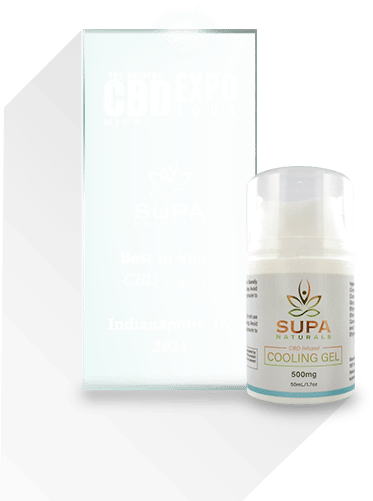7 Questions Answered About CBD
CBD has been on the market for a little more than a year now, and its popularity has absolutely exploded. According to a survey published in August 2019, nearly 1 in 7 Americans have tried using CBD. This high level of use has turned the CBD industry into an industrial juggernaut, with one estimated guessing that CBD will generate $25 billion in economic activity by the end of 2022.
However, the newness of this drug – combined with its popularity – has generated many questions about CBD. To that end, here are seven commonly asked questions about CBD, and their scientifically-backed answers.
What is CBD, anyway?
CBD is short for cannabidiol. CBD is a component of marijuana and is grown and manufactured from the hemp plant. Once produced, CBD is turned into a substance that can be placed in a variety of consumable methods, including vaping juices, edibles, lotions, capsules, creams and more.
Unlike marijuana or other drugs, CBD is generally considered safe to use. A report from the World Health Organization found the compound to be safe, non-addictive and well-tolerated in most humans, although you should absolutely check with your doctor before using CBD.
How much CBD do you need, and how long does it last?
It is difficult, if not impossible, to give a definitive answer to this question. While more research is now being conducted into the CBD field, scientists and medical professionals have yet to determine a specific threshold at which CBD effects can first be felt, or how long the impact of the compound lasts. Fortunately, multiple studies have found that people can consume relatively high levels of CBD and not show any withdrawal effects once they stop using it, although there are some concerns about the impact CBD may have on the human liver.
A variety of potential factors can impact the CBD dosage you need to consume, including your past experience with CBD and cannabis, your body weight, your metabolism and the quality of the CBD you are taking.
The best way to determine how much you need and how long it will last is to experiment on your own. Start by taking a small dose and pay attention to how it is impacting the way you feel or the disorder you are attempting to treat. It may even be worth writing down how you feel and how long the symptoms last in order to get a better idea of what dosage works for you. If you find that a small dosage is not giving you the desired effects, gradually increase the amount you consume until you feel a difference.
What are the most common types of CBD?
There are actually three types of CBD:
- Full spectrum, which contains all of CBD’s naturally occurring flavonoids, terpenes and low levels of THC.
- Broad spectrum, which is identical to full spectrum except that it contains no THC.
- Isolate, which is a fine, powdered substance that is almost pure CBD. All other flavonoids, terpenes, and THC filtered out.
Some people believe that full spectrum CBD provides the most positive impact, citing evidence behind the Entourage Effect. This theory holds that CBD works best when all of its naturally occurring parts – including THC – are left in the compound. However, studies have been conflicted about the Entourage Effect, with some pointing towards its benefits while others say there is no difference between full and broad spectrum CBD.
Can CBD get you high?
Absolutely not. CBD and marijuana both come from the hemp plant, but they can be viewed as distant cousins.
One of the key differences between the two components is the levels of THC. THC is short for tetrahydrocannabinol, which is the chemical compound in marijuana that is responsible for intoxication. Marijuana commonly has 20% THC. By contrast, if THC is produced under legal guidelines in the United States, it will contain no more than .3% THC, a level that cannot get anyone high.
How does CBD work?
By itself, CBD does not directly address any physical or emotional problems. Instead, it alters the functioning of your body’s own Endocannabinoid System. Your Endocannabinoid System is made of three parts:
- Neurotransmitters which produce cannabinoids
- Cannabinoids
- Cannabinoid receptors
Thus far, scientists have found two cannabinoid receptors, known as CB1 and CB2. These receptors are studded throughout your body and can be found in all of your skin, muscles, and organs.
CBD works by altering the bond between your cannabinoids and receptors, causing the bond to last for longer periods of time. This changes the functioning of your Endocannabinoid System, which has an impact on a variety of bodily functions, including pain, stress, anxiety, hunger and more
What are the most common issues people take CBD to treat?
There are studies that show that CBD has the ability to help address numerous issues, including chronic pain, inflammation, skin disorders, insomnia and more.
However, it’s important to note that research is still ongoing when it comes to CBD. Anyone who says that CBD can cure depression, insomnia, chronic pain or more is making claims that have not been evaluated by the Food & Drug Administration. Indeed, the FDA has written cease & desist letters to a series of CBD vendors, ordering them to stop making medical claims about CBD.
That is not to say that CBD does not have the ability to help people address physical or emotional challenges, but it does mean that those statements have yet to be definitively confirmed by science. Thus far, the FDA has only approved one CBD-based medication: Epididolex, a CBD-based drug that can be prescribed to treat two rare seizure disorders in young children.
Will CBD show up on a drug test?
It is possible. Fortunately, it is also extremely unlikely. Typically, marijuana tests work by detecting the levels of THC in a person’s body. If the amount of THC present is about a certain threshold, a positive result will be generated by the test. Since CBD has such a low level of THC, the likelihood of a positive drug test is extremely small.
However, it is still possible. A variety of factors can make a positive drug test after CBD use more likely, including a slower metabolism, history of cannabis use, a short length of time between CBD use and the testing period, higher levels of CBD consumed and extremely sensitive drug tests.
Does CBD interact negatively with any drugs?
Like almost all areas related to CBD, more research is needed. However, initial indications are that this may be the case. Studies have shown that CBD can repress a critical enzyme in your liver. This enzyme is associated with how much medication your body absorbs. As such, when taking CBD with any other medication, you may run the risk of metabolizing more of a medication than you were intended to. This, of course, can be problematic.
A good rule of thumb is the “grapefruit” rule: If a medication has a warning that you shouldn’t eat grapefruit with it, you should also not consume CBD with it, as grapefruit suppresses the same enzyme.
However, above all else: Talk with your doctor or medical professional before consuming CBD. They will know what drugs you are taking, what interactions you may have and will certainly be more familiar with the dangers of CBD and your medication than any internet article ever can be.






